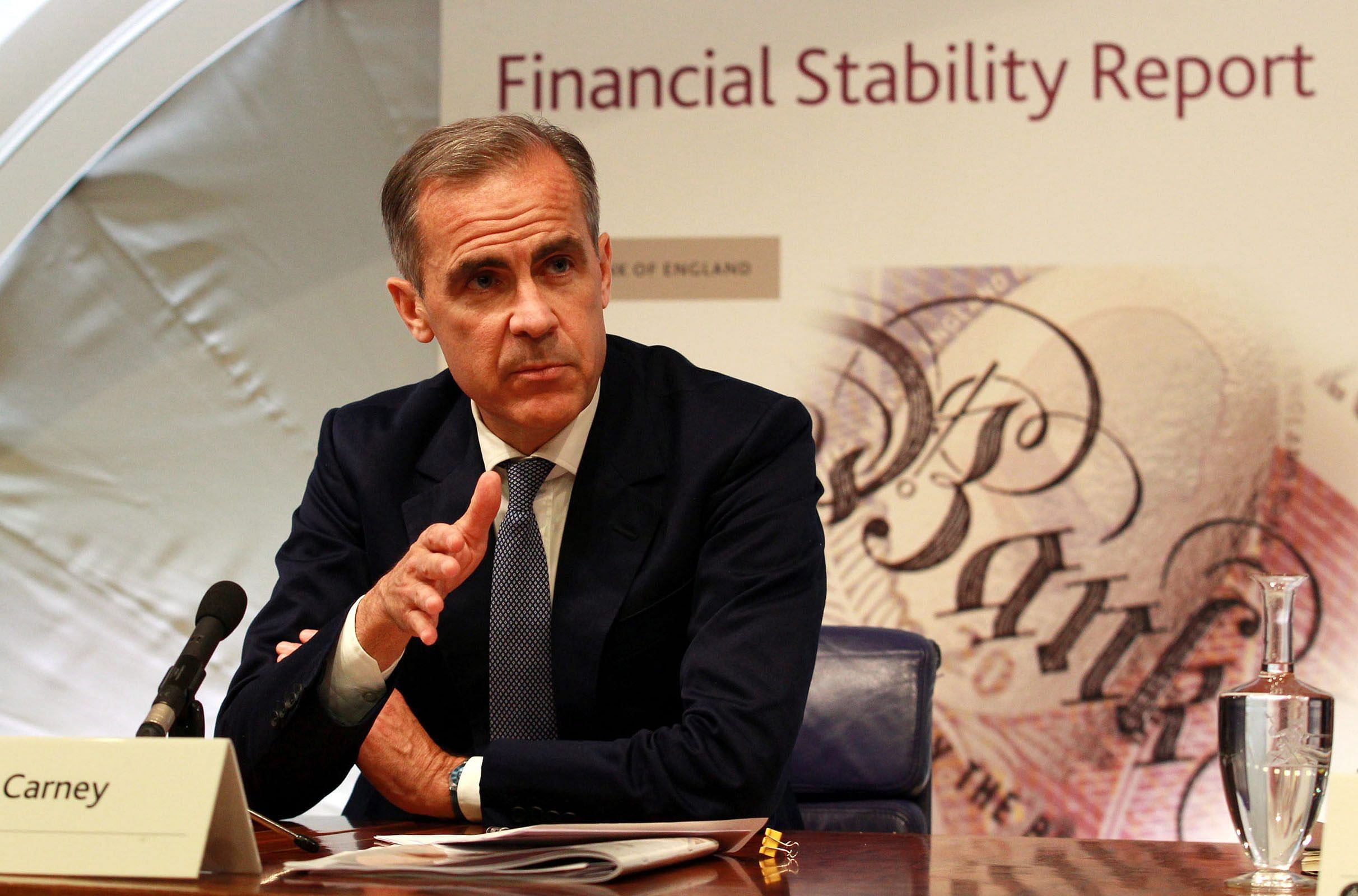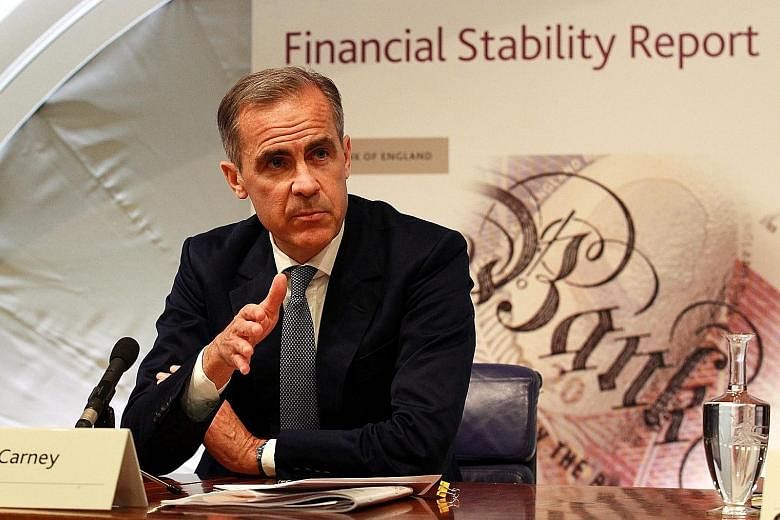LONDON • The Bank of England has claimed it has evidence that the economic risks it feared Britain will be facing after the country voted to leave the European Union (EU) are already becoming apparent.
In its half-yearly Financial Stability Report, the bank concluded that "some risks" associated with Brexit - as Britain's separation from the EU is commonly referred to - "have begun to crystallise". Britain's central bank also admitted that the country's economic future will remain "challenging", a polite way of hinting at further major trouble.
Supporters of Brexit continue to deny that Britain's economy will suffer any long-term consequences; they point out that financial markets and equities appear to have recovered their poise after the initial panic sell-off which followed the surprise EU referendum result.
Brexit supporters also claim that, far from being a disaster, the steep decline in the value of the pound should encourage British exports and translate into a greater number of tourist arrivals.
"The fundamentals of the UK economy are outstandingly strong," boasts Mr Boris Johnson, former mayor of London and a leading Brexit campaigner.

Most experts, however, reject this sanguine view. They point out that the pound has been at its most volatile in a short period of time since the major currencies of the world were allowed to float freely back in the early 1970s. The British currency is also at its weakest point against the US dollar since the mid-1980s.
And although the pound has fared better against the euro, that is only because Europe's single currency is facing its own difficulties.
Either way, the benefits to exporters provided by a lower pound "will be short-lived if we fail to secure access to the EU single market and to markets around the world", warned Ms Rain Newton-Smith, chief economist at the Confederation of British Industry, the country's biggest employer organisation.
Furthermore, economists point out that although the damage to Britain may not be immediately apparent, it is nevertheless likely to be significant. Many commercial companies have postponed investment projects in the UK, and some have cancelled them altogether.
Ryanair, Europe's biggest low-cost airline, is already planning to move its British hub to the continent.
"We have 50 new aircraft joining our fleet next year and we now don't expect to deploy any of these in the UK market at this stage. Instead, we will focus on markets that are part of the single market like Italy, Spain and Germany," said Mr Kenny Jacobs, its chief marketing officer.
The British government's own big infrastructure projects are also in doubt. A decision to build a new runway at London's Heathrow airport has been postponed.
Questions are raised over the completion of a proposed new high-speed rail line to the north of England and a new nuclear power station. There are also signs that the building of homes and commercial property has ground to a halt.
A new recession, or at the very least a severe growth slowdown, is now predicted by most experts.
Eager to avoid such an outcome, Mr Mark Carney, the Bank of England's governor, has signalled his intent to cut short-term interest rates in order to encourage domestic spending. Mr Carney has also goaded Britain's commercial banks into pledging to offer more credit for the country's struggling manufacturers.
Meanwhile, Finance Minister George Osborne has admitted that he is abandoning his austerity policies: He won't seek to cut more from public services as tax revenues fall short.
But Mr Osborne's most controversial initiative is a proposal to cut the corporation tax paid by commercial companies from the current 20 per cent to just under 15 per cent. The strategy makes sense as - if implemented - it may persuade companies to stay put in Britain, rather than start migrating to other parts of Europe.
"Britain must show the world it is still open for business," Mr Osborne told Parliament in London.
But any reduction in corporation tax will be met with fury by EU member states which already resent Britain's low-tax environment, and the Europeans may well retaliate by refusing to make concessions to Britain in the negotiations over the country's withdrawal from the EU. Unsurprisingly, therefore, Mr Osborne has only touted his tax reduction proposal but not acted on it.
Still, there is no doubt that further action from the British government is expected, in an effort to minimise the implication of Brexit. Britain has entered "a period of uncertainty and significant economic adjustment", said Mr Carney.


